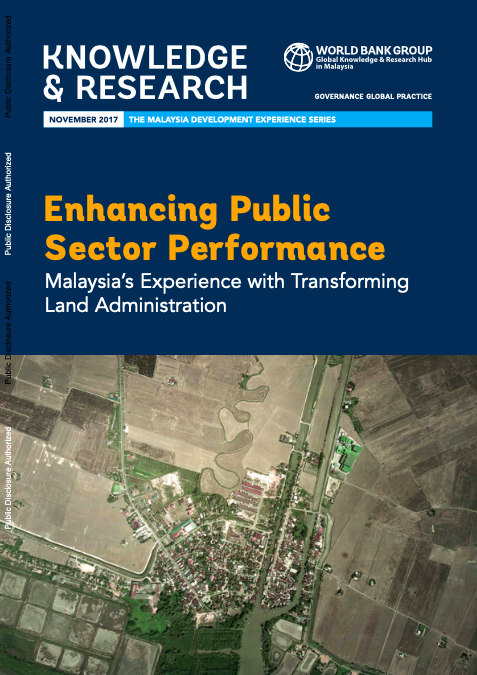Resource information
This report is part of the series focusing on documenting the lessons from Malaysia for other developing countries in improving their public-sector management. These lessons include those at the center of government, such as the delivery unit method applied to the implementation of the national priorities, or implementing the elements of performance-based budgeting, as well as deeper analysis of specific approaches in various sectors. Strategies for improving public sector performance will differ in education, health, public transport, or land administration. Yet at this sectoral juncture, public sector management has the most direct impact on service delivery and citizens’ outcomes. This report focuses on land policies and land administration services because they are key for good governance. They are fundamental for secure land rights, developing land markets and managing land resources in a manner that best contributes to economic growth, efficient public sector service delivery, environmental protection, and social cohesion and security. Land and buildings generally represent between half and three quarters of the national wealth in all countries. The importance of secure land rights and good land administration have been recognized in several international forums including the 2030 Sustainable Development Goals (SDGs), the United Nations Committee on Food Security and the World Bank and International Federation of Surveyors (FIG) Fit for Purpose Land Administration publication.

